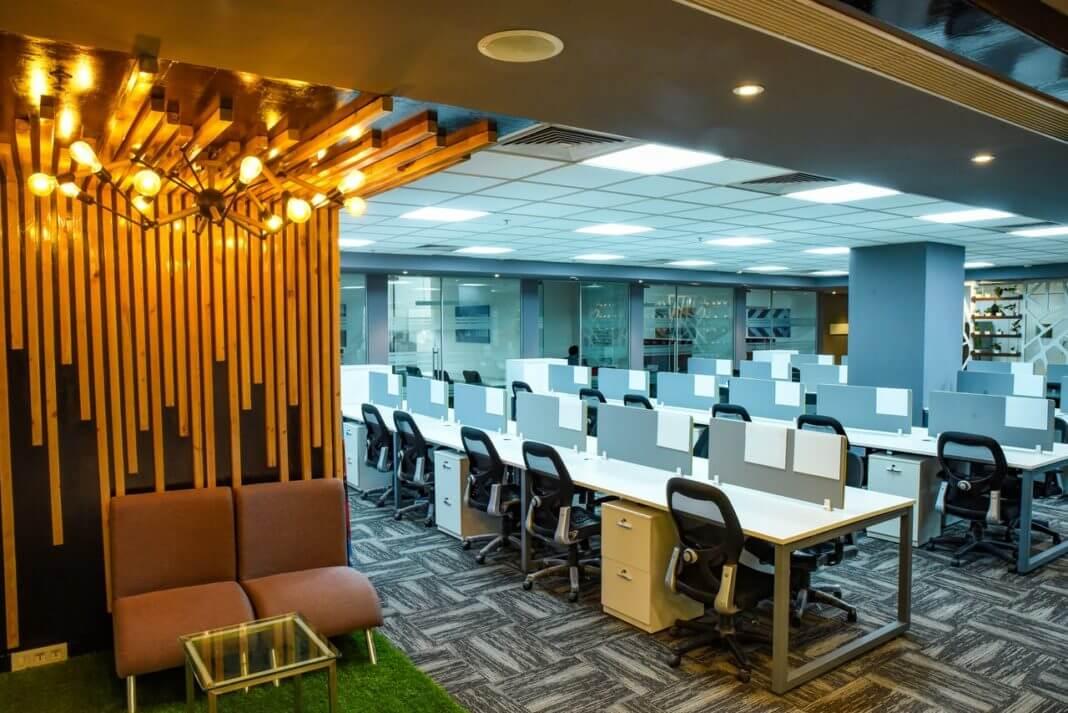




Table of Contents
- Introduction
- History and Evolution
- Benefits of Coworking Spaces
- Types of Coworking Spaces
- Future Trends in Coworking:
- Challenges and Considerations
- Pros and Cons of Coworking Space
- Conclusion
- Faq's
Introduction
Coworking spaces represent a significant shift in how people work, offering a flexible and collaborative alternative to traditional office environments. They are shared workspaces where individuals and companies of varying sizes can rent desks, private offices, or other amenities on a short-term or long-term basis. The community-driven aspect, fostering networking and collaboration, is a key differentiator.
History and Evolution
Coworking spaces emerged in the early 2000s, with the concept gaining traction in 2005 when Brad Neuberg established the first dedicated coworking space in San Francisco. The growth of the gig economy, technological advancements, and the rise of remote work have fueled the proliferation of these spaces globally.
Benefits of Coworking Spaces
- Flexibility and Scalability: Easily adjust workspace size and lease terms as needs change.
- Cost-Effectiveness: Avoid high upfront costs associated with traditional office leases, including utilities and shared amenities.
- Networking and Collaboration: Access to a diverse community of professionals, fostering collaboration and knowledge sharing.
- Professional Environment: Provides a professional and productive atmosphere away from the distractions of home.
- Amenities and Resources: Access to high-speed internet, meeting rooms, printers, and other essential resources.
- Community and Support: Many spaces foster a strong sense of community, providing support and networking opportunities.
 Flexible coworking space,DevX Work
Flexible coworking space,DevX Work
Types of Coworking Spaces
- Open Plan: Shared desks in a large, open area, typically the most affordable option.
- Dedicated Desks: Assigned desk in a shared space, offering more personal workspace.
- Private Offices: Individual or team offices offering privacy and dedicated space.
- Hybrid Spaces: Combine elements of open plan and private office setups, offering flexibility.
- Industry-Specific Spaces: Cater to specific professions or industries, creating focused communities.
- Executive Suites: High-end spaces offering premium services and amenities.
 shared coworking space,Common Desk
shared coworking space,Common Desk
Future Trends in Coworking:
- Hybrid Models: Integration of remote work with occasional coworking visits.
- Technology Integration: Smart building technology, improved connectivity, and workspace booking systems.
- Specialized Spaces: Continued growth of niche coworking spaces catering to specific industries or demographics.
- Sustainability and Wellness: Focus on eco-friendly practices and employee well-being.
- Community Building: Emphasis on fostering stronger communities and more meaningful interactions.
- Location Diversification: Expansion beyond major cities into smaller towns and suburban areas.
Challenges and Considerations
- Noise Levels: Can be distracting in open environments.
- Privacy Concerns: Shared spaces can limit confidentiality and focus.
- Variable Costs: Membership fees can be unpredictable based on usage.
- Community Dynamics: Not all coworking spaces foster a supportive community.
Pros and Cons of Coworking Space
| Pros Of Coworking Space | Cons of Coworking Space |
| Flexibility and scalability of workspace. | Potential distractions from a shared environment. |
| Opportunities for collaboration and networking. | Limited privacy and security for sensitive work. |
| Variety of amenities and services. | Variability in atmosphere and community dynamics |
| Cost savings compared to traditional offices. | Possible commitment to long-term leases or memberships. |
Conclusion
In conclusion, coworking spaces offer a dynamic and evolving solution for individuals and businesses seeking flexible and collaborative work environments. Understanding the benefits, challenges, and future trends will help individuals and organizations make informed decisions about whether a coworking space is the right fit for their needs.
explore further
Latest from Contemporary ideas
More from Innovations
Resources
Dwello, for every home buyer, is a way to go from 'I feel' to 'I know', at no extra cost.




